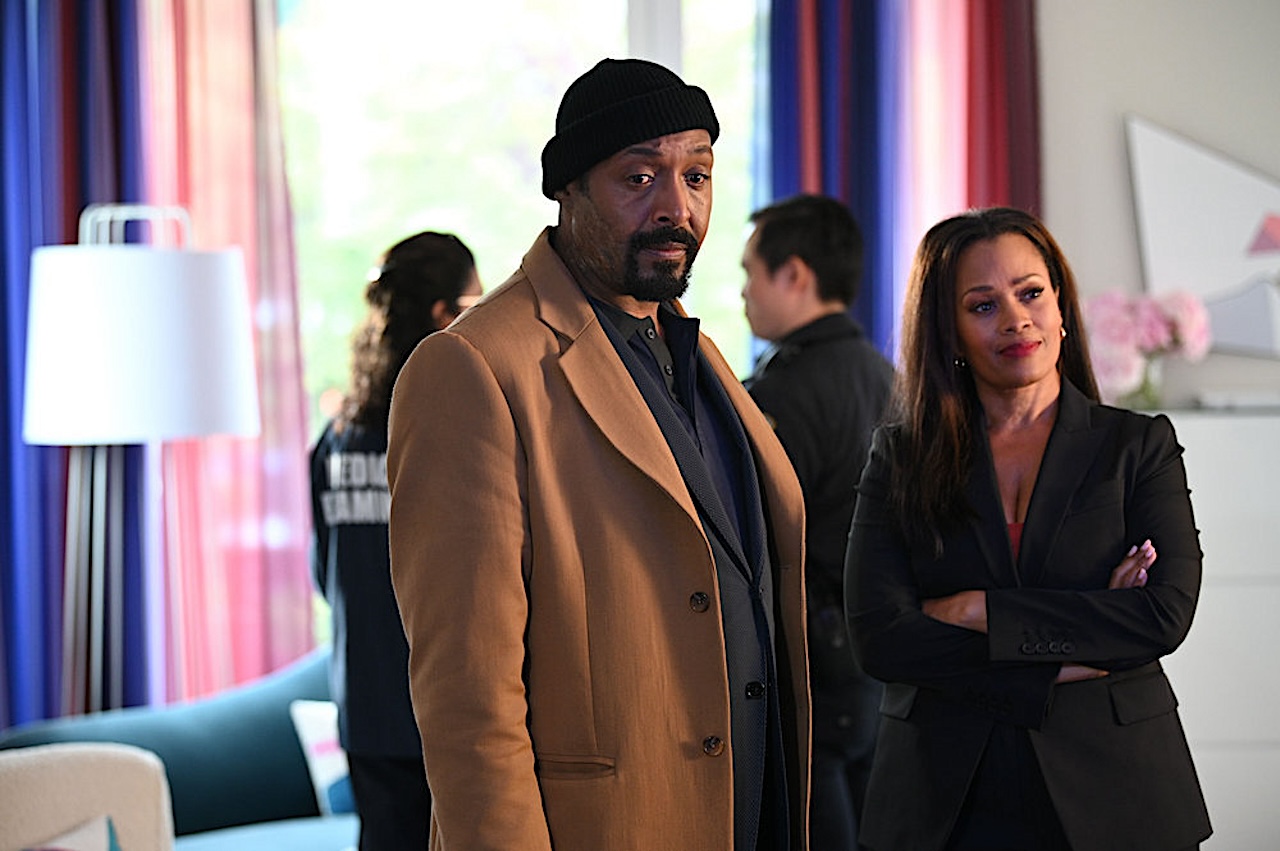The psychological detective procedural has adorned our television screens for decades in our quest to understand our behavior. Each has its own twist on explaining the patterns of human behavior to solve crime cases. The Irrational is the latest in the cadre of such TV shows created by Arika Lisanne Mittman (Dexter, Timeless) based on the book of Dan Ariely titled Predictably Irrational. Ariely served as a consultant on the show which stars Jesse Martin as Alec Mercer (an expert in behavioral science) and Maahra Hill as Marisa (an FBI Agent and Alec’s ex-wife). The Irrational relies on the simple premise of humanity’s propensity to keep making bad, irrational choices when we know the outcome. Mittman spoke with Creative Screenwriting Magazine about her exciting take on the genre.
The key unique aspect of the show is that Mercer isn’t a detective per se. He’s a professor of behavioral and social psychology who works with law enforcement and his students to help solve cases.
Alec Mercer not only solves crimes, he solves puzzles
“I like to think of it as a WHY done it rather than a WHO done it in terms of taking the traditional procedural format and twisting it a little bit,” elaborates the showrunner. “Mercer does so using social psychology and behavioral economics, rather than the traditional detective path of solving a crime. And that’s the difference between a detective story and a crime drama.”
What Are Rational Economics?
“Rational economics is premised on the theory that people behave rationally and will only make the choices that are always in their own self-interest. They are always weighing the pros and cons using logic.”
Arika Mittman rejects this assertion expounds that emotions are the biggest driver of our decisions rather than rational thought processes. Another aspect of rational economics is that we often make choices on a whim without fully thinking something through. “Most things are decided on the fly, and yet, at the same time we are very predictable in the way that we decide to do things. It’s not as random as you might think.”

Arika Lisanne Mittman
Alec Mercer exploits these patterns of human psychology in her storytelling. “He also is very good at manipulating people because he knows how to get somebody to do certain things because of that predictable, irrational behavior.”
Adapting The Book Into A TV Series
Predictably Irrational came into Mittman’s orbit via Mark Goffman, a fellow executive producer and a mutual friend of Dan Ariely’s. “This was a tricky thing to adapt because it’s not a narrative story. It is a non-fiction guide to our predictably irrational behavior,” she says.
Goffman was working on other projects at the time, but really wanted to be involved in The Irrational. So, he recruited Arika to create the TV show.
“Mark sent me some Ted Talks and the book. I got interested right away because I’m interested in human behavior. I’m innately fascinated by it. Ariely names his principles and organizes them in a specific way based on his experiments.”
That set the wheels in motion. Mittman was also attracted to creating a main character who wasn’t tied to any law enforcement agency.
The Irrational follows a traditional five act broadcast television structure with an extended teaser. “Typically a writer’s draft comes in at 50 to 52 pages. Then we end up having to trim that for production to say 49 pages,” continues Mittman.
All the stories for the series are broken together in the writers’ room. “We break the full season together as a team with bullet points. There’s a serialized B-story that runs underneath the case of the week A-stories.”
“We start out at the beginning of a season talking big picture stories. What are the arcs for the characters? How will we structure the story arc?” Arika Mittman also gives her writers relevant books to read before opening her writers’ room.
“After we’ve done that, we start talking about individual episodes. What are some great case ideas that will help our characters along on their journey? Case ideas come up in different ways. Sometimes they’re from a news story about this weird thing that seems irrational and fits our show. Sometimes we start with a really cool social psychology concept. And then other times. it comes from what’s the case that would help our characters connect?”
Once the story ideas are collated, the episodes are fully broken in the writers’ room one by one. The writers create comprehensive beat sheets and each writer outlines their episode from it. Then the writers give each other notes before the writing begins.
“Sometimes we will split the room into two rooms and start breaking two episodes at once to save time. I keep a very organized, structured room. There’s always a plan for what we’re doing.”
The only writing rule you can’t break is don’t be boring
“In every episode, we start with an irrational question. In the pilot, it’s, ‘Why would someone confess to a murder he didn’t commit?‘”

Rizwan (Arash DeMaxi) & Phoebe (Molly Kunz) Photo by: Sergei Bachlakov/ NBC
The A-story is the case of the week and the serialized B-story delves into Alec and Marisa’s backstory and the church bombing in the past. The B-story can also build out the backstory of other characters like Phoebe (Molly Kunz) and Rizwan (Arash DeMaxi), the psychology graduate students assisting Mercer. Sometimes, there is also a C-story.
The Pilot Episode
TV pilots, especially broadcast, typically fall into two camps – origin/ premise story and typical episode. The Irrational is a hybrid pilot which incorporates elements of both.
“It’s a premise pilot in that we are setting up something new such as learning there’s more to this church bombing than they thought. After years of assuming it was one thing they start to realize there may be a bigger conspiracy there.”
In terms of a typical episode pilot, the audience sees Alec in his regular life in his new job taking on a new case. “It’s the case of the week. It is a day in his usual life where he helps the FBI, he works in his classroom and stuff.”
Alec is immediately presented as a main character of interest. “I love a character who has scars, and his are both metaphorical and literal. He has physical scars and emotional scars. When he was burned in this church bombing, it affects the rest of his life,” continues Arika.
“He’s looked at differently. To some people he looks like a monster and it informs the way he approaches relationships. It informs the way he sees himself as a human being. But it also inspires him to do this kind of work. It is that event that makes him question why we do things in the way we do them.”
This backstory also depicts how he met his ex-wife, Marisa. “The bombing was her first case as an FBI agent, so it’s very emotional for her as well.”
Marisa and Alec continue to work together to solve cases. She keeps Alec grounded. “He has this very human, very difficult situation where he’s going through a divorce. They’re in uncharted territory. They’re trying to figure out how to continue to be appropriate co-workers and what are the rules for this new dynamic. They have to figure out how do they put aside all of their feelings and focus on something that’s all about their feelings.”
“There’s a scene where they’re walking up to the crime scene and there’s this banter back and forth between them. It’s just so natural and so easy. They’re almost finishing each other’s sentences and I think that tells you a lot about these two characters. There’s conflict, but they like each other.”
In another moment, Marisa declares her admiration of Alec’s ability to separate logic from reason. It’s the reason she married him, but also the reason they are no longer married.
Closing Thoughts
“I always come from a place of character. I like to write characters that are very specific, and have specific ways that they talk. I like to write characters that talk like real people, just a little smarter than the average real person. I love characters who are flawed, sometimes tragically so. I like characters who can be heroic and are somebody that you’d admire and relate to,” concludes Mittman.
